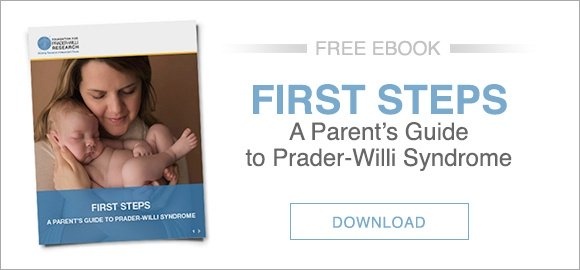The 6th Annual International Prader-Willi Syndrome Organization (IPWSO) Conference was held in Romania in June 2007. The research abstracts from the conference are available online at the Asociacin Madrile para el SÃndrome de Prader-Willi (AMSPW) website. All of the abstracts can be freely downloaded from the AMPSW website and there are many interesting findings to browse through. Here's just a few that may be of interest:
With respect to understanding the genetics/regulation of the PWS region, one study implicates snoRNA HBII-85 as a major determinant of the PWS phenotype based on a patient with features of PWS but a much smaller deletion than usual (Driscoll). The nuclear-regulatory factor 1 (NRF1) protein is reported to acts as a "master regulator", activating expression of many of the genes and RNAs in the PWS region on the paternal chromosome (Stefan).
In the mouse model area, a more detailed evaluation of a PWS mouse model that can live to adulthood (the ICdel model) was reported by Goldstone and colleagues, who find that the early failure to thrive and growth retardation in present in pups persists into adulthood. Hyperphagia and obesity never develop, in fact these mice take in considerably less food than their normal littermates. One feature that does appear to be similar to adult humans with PWS is an apparent increase in the size of the ventricles of the brain. Dr. Isles' group (Relkovic) is studying behavioral aspects of these mice and finds that these animals have generally lower activity than their littermates, but they are particularly good at learning a maze task. They suggest this may be associated with an altered motivational process.
On the human front, several reports looked at issues of hormones and sexual development. One report suggests that infertility may not be a universal feature in males with PWS, although additional studies are needed (Vogel). Hormone replacement therapy (testosterone in men, estrogen in women) was found to be safe, was not generally associated with negative behavioral changes, and resulted in improved body composition and bone mineral density in adults (Nagai and coworkers, Loughnan and coworkers). Also along these lines, Dr. Whitman has begun reassessing sexual behavior in adolescents and adults with PWS, given that improved management and growth hormone therapy may require that we alter what was previously understood about these issues (see also, new study supported by FPWR).
In the behavior/psychiatric research area, Drs. Foster and Gourash describe their experience with mood activation, which can occur when people with PWS receive SSRIs. Investigators from the UK (Webb) looked more closely at the genetics of those with psychosis in PWS, narrowing down and getting a better understanding of the region of maternally active DNA on chromosome 15 that may underlie the susceptibility to psychosis.
With respect to young children with PWS, reports continue to be supportive of the beneficial effect of early growth hormone therapy (Tsuchiya; Whitman). Another study looks at thyroid function. Despite normal results at the time of newborn screening, doctors in Argentina report that hypothyroidism is common in infants with PWS. Given the potential adverse effects that hypothyroidism can have on development, as well as readily availability and effective treatment, it seems prudent for infants with PWS to be carefully evaluated for thyroid function (Herzovich).
There are many other interesting studies available, ranging from infant to adults, genetics to environment. Many thanks to AMSPW for posting the abstracts for those who weren"t able to attend!








